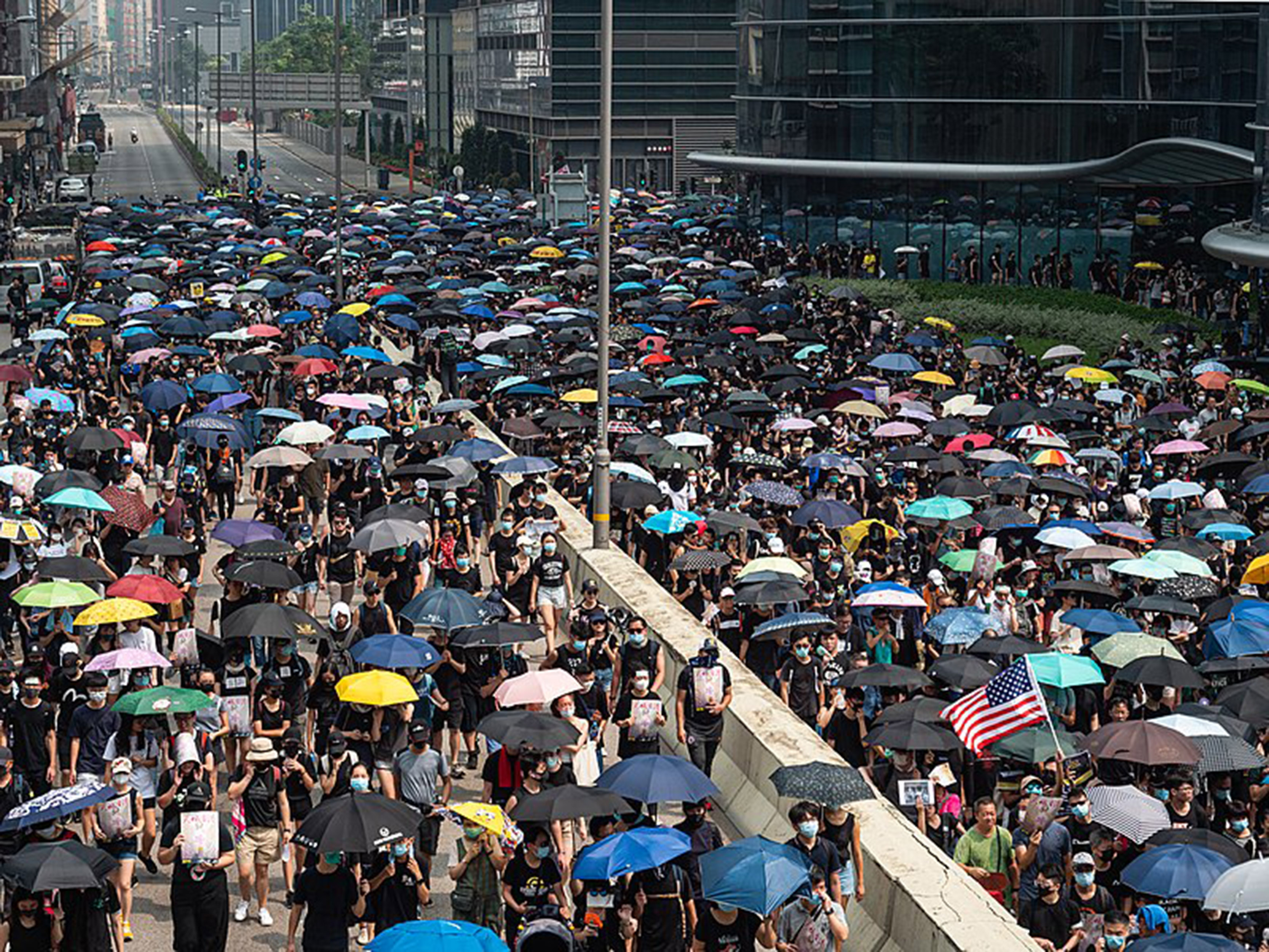Protestors vow to not stop until claims of police brutality are investigated
Photo courtesy of Wikicommons
Hong Kong Chief Executive Carrie Lam announced on Sept. 4 that the Hong Kong government plans to withdraw an extradition bill that has sparked a three- month-long series of protests throughout the city. In a televised broadcast, Lam stated, “We are all very anxious about Hong Kong, our home. We all hope to find a way out of the current impasse and unsettling times.” Protesters have responded stating that they do not plan to stop the demonstrations until demands for an investigation into alleged police brutality during the last three months are met. They also are demanding the release of those imprisoned during the demonstration. Pro-democracy leaders expressed skepticism regarding the withdrawal of the bill. According to Professor Jean-Pierre Cabestan of Hong Kong Baptist University, “(The aim of the withdrawal) was to calm down the movement’s radicals and weaken and isolate the radicals.” Hong Kong lawmaker Michael Tien has stated that the withdrawal would have been effective in June, but the subsequent turmoil has made more measures necessary to settle the protests.
The bill that was withdrawn would allow Hong Kong residents to be extradited to mainland China for trials, facing the Chinese legal system rather than Hong Kong’s. This separation is part of the “One Country, Two Systems” policy enacted upon Hong Kong’s return to China, according to Lam. The policy
granted Hong Kong political autonomy under Chinese rule in the form of a constitution, legal system and the right to free speech and assembly for 50 years after the return of the city to China in 1997. However, Hong Kong residents lost their right to democratic elections under the new system. Instead, a leader is appointed by a 1,200 member
elections committee. The Hong Kong Elections Committee has been criticized throughout its history for being a pro-Beijing institution and for attempting to remove the autonomy granted under the agreement. Throughout the late ‘90s and into the 2000s, the Elections Committee has passed reforms to the city’s govern
ment which favor Chinese business interests and the Chinese Communist Party. The Committee is divided into four sectors: Industrial, Professions, Labour and Legislative Council. The Industrial sector is exclusively represented by Chinese corporate electors and comprises 25% of all electoral votes. Additionally, the three other sectors are occupied by a majority of corporate representatives. Many of the reforms have been criticized as anti-democratic, such as the 2005 and 2014 electoral reforms, both of which strengthened the power of the Elections Committee. With the withdrawal of the extradition bill, the future of Hong Kong remains unclear. The scale of the protests has garnered negative attention from the Chinese Communist Party. Beijing officials issued a warning to future demonstrations stating “Beijing will not sit idly by.” The Party has also placed pressure on Hong Kong corporations and officials to oppose the demonstrations. Pro-Beijing officials encouraged protesters to accept the withdrawal, but activists have rejected it as a political stunt. The protests reached the three-month mark on Sept. 9.
By Will Ripley | Guest Writer












